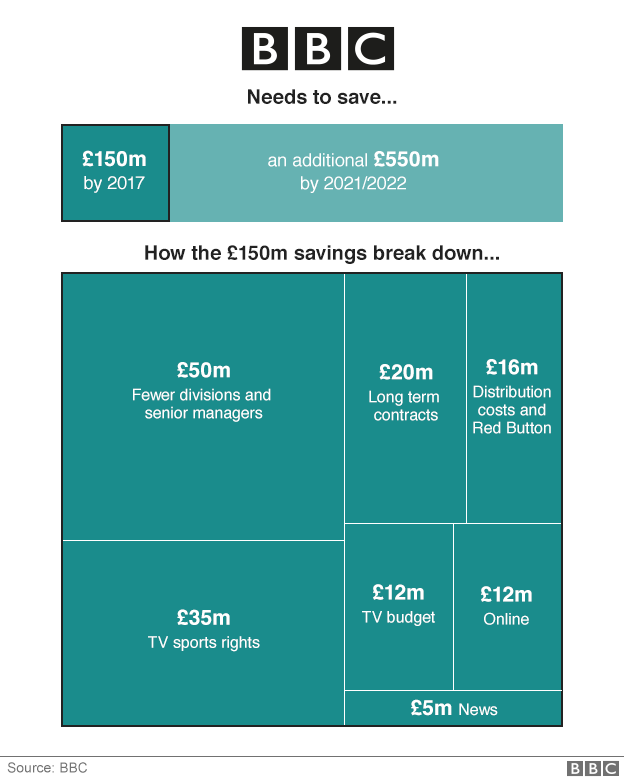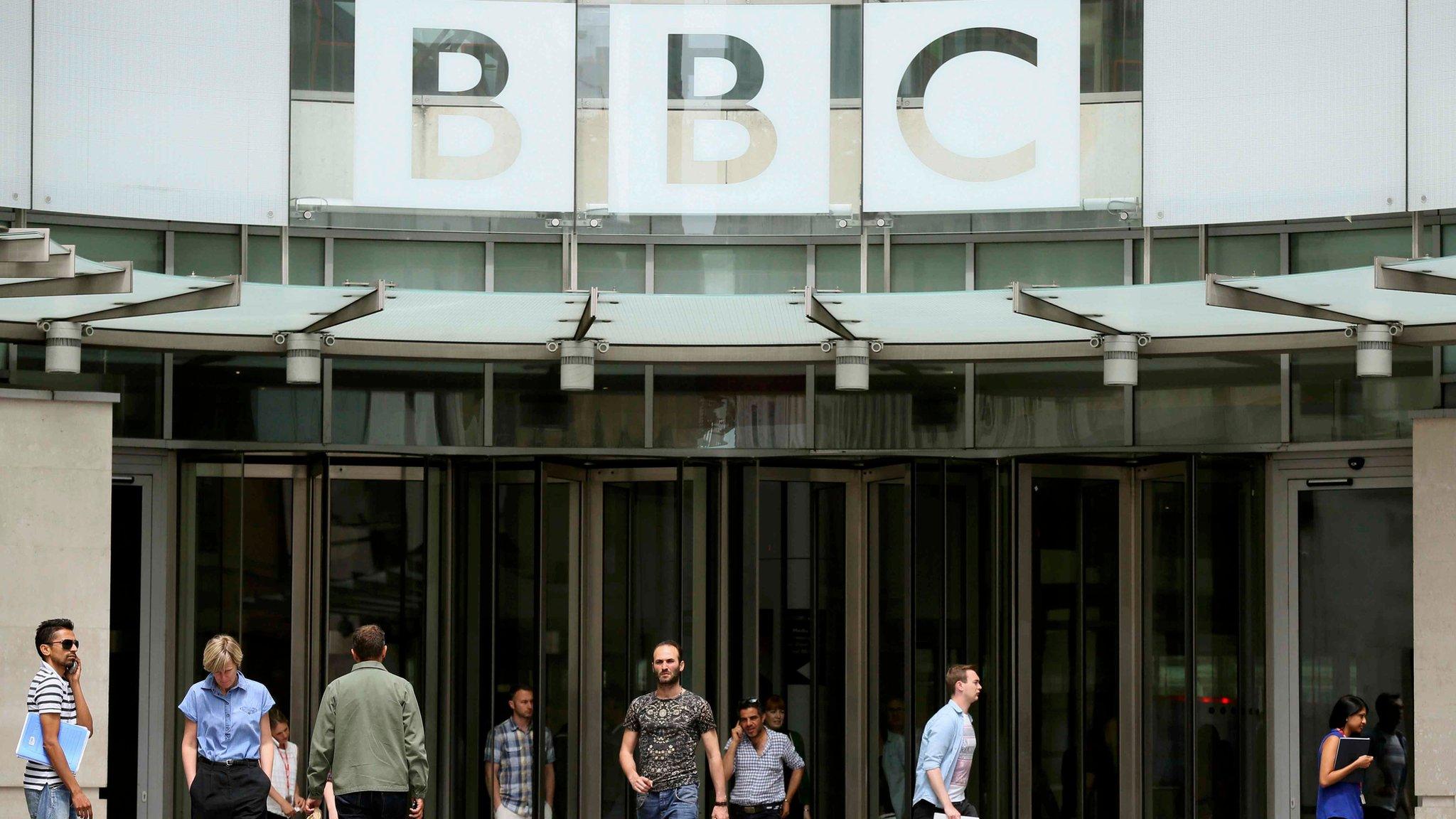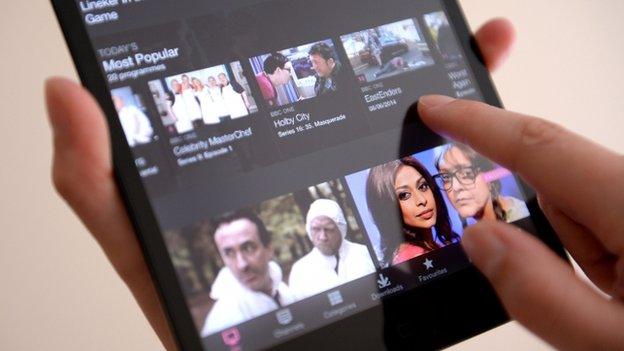Red Button 'at risk' from £150m BBC cuts
- Published

The Red Button offers news and sport text services as well as extra channels during special events
The BBC could close its Red Button services as part of £150m of cuts.
Replacing BBC Ceefax, it offers news and sport text services as well as extra channels during events such as Wimbledon and Glastonbury.
A £35m cut is also being made to sports rights.
The BBC has already lost the rights to the Open Golf Tournament and while no event has been officially earmarked, it could throw doubt on the corporation's coverage of sports such as F1 racing.
The BBC's TV budget is also being reduced by £12m, but BBC drama and shows such as Strictly Come Dancing will be protected from the savings.
The cuts also include 1,000 job losses, which were announced in July.

The BBC has laid out the £150 million savings in the following way:
£50m to be saved with fewer divisions and senior managers and fewer layers between the top and bottom of the organisation
£35m savings in the BBC's TV sports rights budget
£25m to come from reducing back office and professional support services
£20m from long-term contracts and other costs
£16m to come from cutting distribution costs, a "phased exit" from the Red Button service and further savings from BBC Online
£12m to come from the TV budget. Drama will be protected but there will be some reductions in factual, comedy and entertainment
£12m to be cut from BBC Online, with greater focus on areas with the greatest impact
£10m from reducing management layers in content areas, merging technology and digital divisions and changes to expenses, payroll management and other areas
£5m to come from BBC News, including cost reductions in BBC Monitoring (subject to approval from the BBC Trust)
The BBC said the savings were a consequence of a drop in the licence fee income because of what it calls the "iPlayer loophole".
This refers to people who have switched to watching BBC services only on "catch up" via the iPlayer, which does not currently require payment of the licence fee.
The BBC said it had received assurances from the government that this "loophole" would be closed.
A further £550m of savings are due to be announced in spring 2016.

Analysis
David Sillito, Media Correspondent
The announcement that a "phased exit" from Red Button services is now being considered makes sense if you think the BBC will increasingly be accessed online via the iPlayer.
The problem is sport, weather, headlines, alternative commentaries and repeats of popular programmes on the old red button services are still used by large numbers of people.
They are more likely to be older viewers, but older viewers watch more TV and are a growing part of the population.
The BBC knows it has to chase the viewers of tomorrow and deliver programmes in the way they want to watch them, but it can't afford to alienate the people who are the heaviest users of its services.

"The BBC has and is doing everything possible to make sure the impact on the public is minimised," said director general Tony Hall. "Wherever possible we're targeting savings by creating a simpler, leaner, BBC.
"But cuts to budgets for programmes and services are unavoidable. No director general wants to announce reduced spending on services that the public love.
"This is very tough, but the BBC's financial position means there is no alternative."
Broadcast union Bectu responded to Wednesday's announcement by calling on the BBC's senior managers "to fight for the corporation".
In a statement, Bectu general secretary Gerry Morrissey said the BBC was "doing everything it can not to lose services" but said it was "clear... this position cannot be maintained".
"What we need is a BBC management prepared to fight for the BBC," he continued. "Without this commitment the licence fee payer will only continue to lose out."
- Published18 November 2015

- Published6 July 2015

- Published5 July 2015
